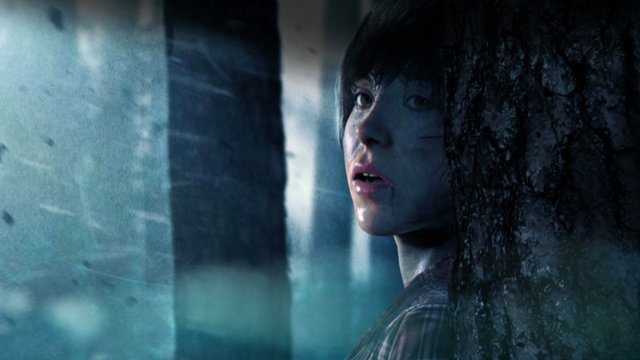David Cage, the founder and CEO of Quantic Dream and lead designer/writer/director of Omikron: The Nomad Soul, Fahrenheit / Indigo Prophecy, Heavy Rain, and the upcoming Beyond: Two Souls, has been very outspoken about his views on video games and where he believes their narrative can go. As such, it should come to no surprise that during his BAFTA Games keynote at London, he talked about the future of game narrative. His version? Taking influence from famous directors (like Peckinpah, Scorsese, Orson Welles or Francis Ford Capella), and procedurally generating those styles through algorithms.
As Cage explained during his keynote,”So you could probably have a model of how Scorsese, for example, films. You could probably create an algorithm that uses this type of camera, this type of framing and these kind of lenses, and these kind of movements in general. And then you could probably have a script that sends to the AI system what’s going on emotionally. This is a very stressful sequence. And then your AI moves to ‘Scorsese mode’ whatever. I don’t know whether he would like that. This R&D doesn’t exist, this is pure science fiction, I don’t know of anyone who has done it yet. But I think it’s an interesting way to solve our problem that we have when filming game play. In cut scenes, no problem, you saw the tool, you can do pretty much what you want. But with game play you don’t control where the player goes, so you need to have something procedural. That would be a very interesting solution.”

However, that doesn’t mean that this hasn’t been met with resistance. Directors such as George Lucas and Steven Spielberg have publicly stated stories cannot be told with the player in charge. Cage disagreed, saying, “It’s interesting to see that maybe they’re not fully aware of what this industry is really doing because actually we are making it, we are creating interactive storytelling. To tell you the truth, my gut feeling is that this is the most exciting evolution in storytelling since films were invented.”
To tell you the truth, my gut feeling is that this is the most exciting evolution in storytelling since films were invented
This should come as no surprise given that BAFTA, created in 2006, has tried to recognize video games equal to film and television in regards to importance. BAFTA chair member Harvey Elliot described the foundation as a way to “strengthen the cross-industry engagement through innovation within games, and consistently reinforce games as on of the principle contemporary art forms.” He has also tried to recognize the increasing convergence between the three mediums, saying, “Film is constantly evolving with the use of computer technologies to enhance its productions; TV is inspired by film-quality production driving deeper and richer narratives and breathtaking artistic values whilst introducing interactive elements to extend the viewing experience beyond the screen through apps, web experiences and hidden secrets that the hardcore fan can enjoy; and games is constantly pushing at the edge of what is possible technically and creating experiences that are so engaging and immersive that the are creating a near insatiable demand for more and more content in turn driving extensive episodic content.”

“Of all the industries however, it is games that has the hardest task ahead. Developing rich and compelling experiences on the new high-end consoles, whilst enabling a fresh way to play on mobile and tablets, and often within the same fictional universes, will remain one of the greatest challenges on that journey. And as an industry that is still only a few decades old it will draw on all the expertise it can get from Film and TV, in the process returning back a new group of inspirational and creative individuals to shape the entertainment industry as a whole.”
Games more than any other industry need to be open to market trends
Eliot also feels that video games have had to “mature” more quickly than other mediums, saying, “The technology platforms available to consumers continues to broaden, and the diversity of skills required to take advantage of these technologies continues to broaden . In all cases, it is critical for the games industry to recognize it’s unique place in entertainment, and that the interactivity and depth of experience that it provides to players is critical in ensuring on-going engagement. Games more than any other industry needs [sic] to be open to market trends, follow user play patterns and consumer behaviors, and continue to find reasons for players to choose a game engagement over other entertainment.”
He finished by saying, “The games industry needs to ensure that it retains creativity as its core value, and that the business necessities don’t overtake the very core creative experience that underpins any great game.”











Published: Sep 13, 2013 08:48 pm